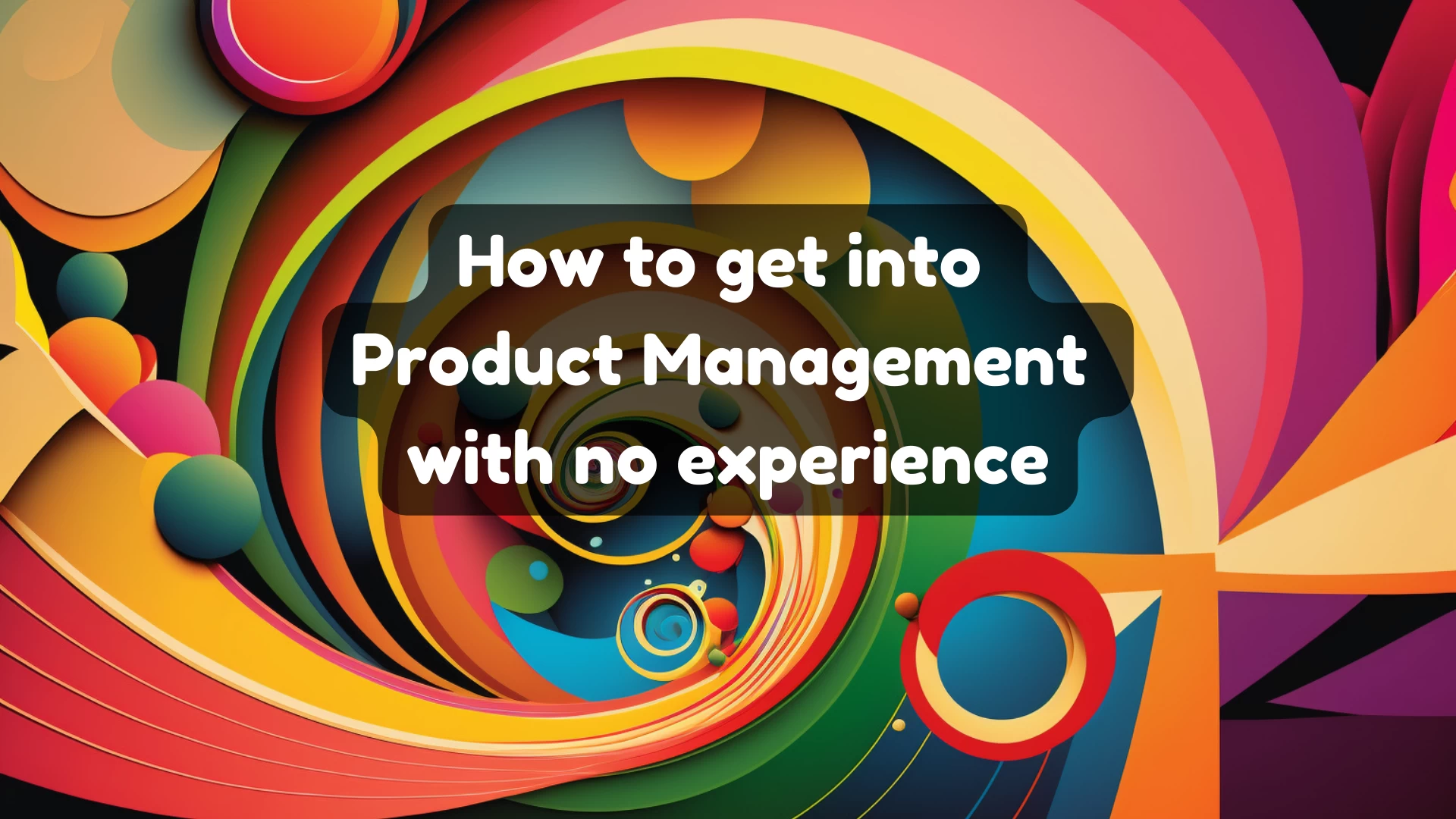Jul 29, 2020
How to Get Into Product Management With No Experience

Getting into product management with no experience may seem daunting, but you can achieve your goal by breaking it down into smaller steps. Start by taking on a pet project, reading business books, getting a job at a tech company, and acting like a product manager. Keep building your skills, and you will soon be on your way to a career in product management.
1. Start a pet project
You've likely experienced a number of painful problems in your life and thought, "I wish someone could fix this!" Well, today it's your turn. Choose a problem that you're passionate about and approach it as a product manager would. The goal is not to create a business but rather to become familiar with the process and practise some skills.When interviewing for Product Manager positions, it's important to be able to support your answers with real-life examples. Doing so can be a powerful way to distinguish yourself from other candidates who only possess theoretical knowledge.
Problems are ubiquitous, including the one you are currently attempting to solve: "How to become a product manager with no experience?" Can you elaborate on this problem and identify an opportunity for a product?
- How many people are experiencing this problem, and how often does it occur?
- To what extent is this problem causing pain for those affected by it?
- How would you solve this problem with technology?
- How and where would you market the solution to your target audience?
- How would you determine whether the solution is effective?
Answering these questions can be tricky, but it's an important exercise to practice.
2. Start reading
To gain more knowledge about product management, it is recommended that you develop the habit of reading business books."The Mom Test" by Rob Fitzpatrick is an excellent starting point that provides practical tips for talking to customers and learning if your business idea is a good one. The book is particularly useful for product managers, user experience designers, and tech professionals looking to improve their customer communication skills. The concept of "The Mom Test" is that customers own the problem, and you own the solution. The book emphasises the importance of asking the right questions, avoiding compliments, and understanding customer problems and goals. It also provides a list of great questions to ask potential customers. The book is a must-read for anyone interested in building their own business or pursuing a career in product management or UX. Read the Mom Test Summary if you'd like to dig in deeper.
See “The 3 Leadership Books every Product Manager Should Read” to help you lead a product and a product team and communicate the vision, purpose, and strategy. Listen to people, build meaningful relationships, and create a culture that inspires your team to give their all.
When it comes to reading business books to help you get into product management, it's important to focus on books that cover topics like product development, marketing, and business strategy. This will help you gain a better understanding of the overall product management process and the different components that go into creating a successful product.
Some great books to start with include "The Lean Startup" by Eric Ries, which focuses on how to create products that people actually want to buy, and "Crossing the Chasm" by Geoffrey Moore, which explores how to market new products to a mass audience. Another helpful book is "Inspired: How to Create Tech Products Customers Love" by Marty Cagan, which provides practical advice on how to build great products that solve real customer problems.
In addition to these books, it can also be helpful to read blogs and articles from industry experts to stay up to date with the latest trends and best practises in product management. This can give you a better understanding of the challenges facing the industry and help you stay ahead of the curve when it comes to developing new products.
Reading business books and other industry resources is a great way to build your knowledge base and gain the skills and insights you need to succeed as a product manager. By staying informed and up to date on the latest trends and best practices, you can position yourself as a valuable asset to any organisation and take your career in product management to the next level.
3. Get a job at a tech company
Getting a job at a tech company can be a great way to start or advance your career in product management. Here are some reasons why:- Exposure to product management processes: Working in a tech company will expose you to various product management processes such as ideation, product development, product launch, and product scaling. This exposure will help you understand how product managers work, their challenges, and their contributions to the company.
- Opportunities to work with cross-functional teams: Product managers collaborate with a variety of teams, including engineering, design, sales, marketing, and customer success. Working in a tech company will provide you with opportunities to work closely with these teams and learn how to manage them effectively.
- Access to cutting-edge technologies: Tech companies are often at the forefront of innovation and use cutting-edge technologies to develop their products. Working at a tech company will provide you with access to these technologies and help you develop your technical skills.
- Networking opportunities: Tech companies often have a large network of professionals from various industries. This network can be a great resource for your career growth, as you can learn from experienced professionals, get feedback on your ideas, and get introduced to new opportunities.
4. Talk to your manager
If you already have a job in a tech company, one of the easiest ways to transition to Product Management is to talk to your manager. Your manager may be able to provide you with guidance and resources to help you develop the skills needed to be a successful Product Manager. Be open to feedback and take advantage of any opportunities to learn and grow within your company. With dedication and persistence, you can successfully transition to a Product Management role.5. Act like a Product Manager
Embrace the Product Management mindset: Product Managers are problem solvers. They are always curious, innovative and focused on the customer. Start thinking and acting like a Product Manager to build the right habits and behaviours to succeed in this field.Understand Product Development roles and responsibilities and the Product Life Cycle: Know the various stages of the Product Life Cycle, including ideation, research, design, testing, launch, and post-launch. This knowledge will help you understand how to identify customer problems, create product solutions, and measure success.
Network with Product Managers: Attend meetups, conferences and other events where you can meet Product Managers and learn from their experiences. This will also help you build a network that can help you find job opportunities and mentorship.
Shadow Product Managers: Ask Product Managers in your organisation if you can shadow them on their day-to-day tasks. This will give you a better understanding of what the role entails and how to perform key tasks such as user research, stakeholder management, and product roadmap planning. Look at everything through the three lenses of product management: user, business, and tech:
- What customer problems are we trying to solve?
- What's happening in the market?
- How do we know this customer problem is worth solving?
- What are the business challenges?
- How are we measuring success? How are we keeping track of it?
- How do we know the solution we are designing will work?
- What other options have we considered?
Getting into Product Management with no experience can be challenging
Product management is a challenging and rewarding field that requires a unique blend of skills and experience. As a product manager, you need to be able to work with cross-functional teams, understand market trends and customer needs, and manage a product's lifecycle from conception to launch and beyond.However, getting into product management with no experience can be challenging. If you're interested in this field, it's important to be patient and persistent in building your skills and network.
About Max Antonov
I'm a father of three from Sydney, a Product Director and a Product Coach. I write about product management and run the Product Manager community.
Feel free to reach out: [email protected].
Subscribe to receive digest emails (1 per month).
